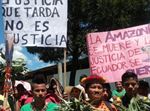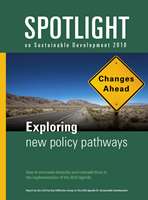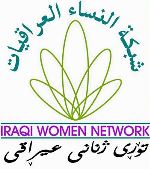Social Watch news
Published on Tue, 2018-10-02 16:30
 |
Introduction: the rise of corporate malpractice
Over the last months multinational corporations have jumped from the ‘economy and business’ pages of world newspapers to the sections on ‘crime and police’: Volkswagen was found guilty of programming its cars to cheat on emission tests enabling it to contaminate while on the streets way beyond the acceptable limits. The sugar industry was exposed as having a long record of fake scientific research aimed at blaming other factors for the health problems that they create. Goldman Sachs helped the Greek government in 2001 to lie about the state of its economy, in order to be admitted into the Eurozone. Between 2012 and 2015 the most powerful banks of the world, including Barclays, Chase Morgan, Citibank, Deutsche Bank, HSBC, Lloyds, Royal Bank of Scotland and others, paid billions of dollars in fines for having manipulated for their own benefit the exchange rates among global currencies and the Libor interest rates that determine the cost of billions of credit operations around the world every day.
|
Published on Mon, 2018-10-01 08:42
Civil society organizations from Ecuador have brought to the attention of human rights bodies several cases of conflict between extractive industries and indigenous communities. In August 2017, the UN Committee on the Elimination of Racial Discrimination was urged to investigate the situation of several families from the Shuar community displaced unlawfully by the copper mining project San Carlos Panantza in the Amazon region. Four Amazonian provinces (Napo, Orellana, Pastaza and Morona Santiago) are affected by oil explorations over a total surface of four million hectares. The Center on Economic and Social Rights (CESR) is concerned that the consultation process with hundreds of indigenous communities in that huge area has not been conducted properly.
|
Published on Mon, 2018-10-01 08:38
In 2015, with the adoption of the 2030 Agenda for Sustainable Development and the Sustainable Development Goals (SDGs), governments acknowledged the mutually enforcing power of peace and development. The 2030 Agenda represents a paradigm shift in terms of universality and interlinked goals, including across borders and affirms the need for a rights-based approach to peace and security, one focused on prevention. At the same time, most governments are still producing, trading and spending more on arms, thereby fueling a militarized approach to peace and security. Dominant power talks on how to achieve peace continue to silence those impacted most by conflicts and wars, including women and children. Profits made under war economies and through the arms trade continue to deepen inequalities and violate the rights of those with enormous humanitarian and development needs.
|
Published on Mon, 2018-10-01 06:49
In the Czech Republic the most pressing social issue is the degree of household debt and the frequency of debt-related property seizures, which affects more than 8 percent of the population. Aggressive by private collection agencies, initiating actions for often minor sums have deprived hundreds of thousands of people of their property and often forced them to the edge of the society or even into homelessness.
Nevertheless, Ondřej Lánský and Tomáš Tožička report on behalf of Social Watch-Czech Republic that “the conservative and liberal political right that dominates the public discourse keeps repeating that we are living in the best of times and that everybody’s well-off. It therefore forgets a large part of the society that lost in the transformation towards a market economy. They lost in the sense of lacking economic securities that used to be in place, and as a result of direct social degradation. But the major part of academia and the cultural elites refused to pay attention to social issues. Most of the churches and NGOs focused on providing paternalist assistance to the most vulnerable while keeping with the logic of individualistic responsibility. ‘New politicians’ coming from oligarchic circles are preying on such sentiments, promising more dignity to the low and middle classes, often outside of the urban centres.”
|
Published on Mon, 2018-09-24 10:38
Because of its importance to achieving gender equality, SDG 5 calls for recognition and value of unpaid care and domestic work through the provision of public services, infrastructure and social protection policies and the promotion of shared responsibility within the household and the family as nationally appropriate. Beyond this, care is a cross-cutting issue along all of the SDGs.
There is still a huge gender gap in terms of the time devoted to domestic and care activities. The massive burden of domestic and care work on women’s lives is the consequence of what we define as unfair social organization of care. This means an unequal distribution of responsibilities between, on the one hand, the State, market, households and communities, and, on the other hand, between men and women.
|
Published on Mon, 2018-09-24 10:35
Angélica Beltrán, Karla Díaz and David Cruz, researchers from Asociación Ambiente y Sociedad of Colombia argue that “extractive industries and atmospheric pollution in the cities are a major source of socio-environmental conflicts”. The report states: “Environmental protection shows a progressive weakening…. Due to the lack of updated environmental information and the simplification of procedures in the granting of permits and licenses, the affected communities find it increasingly difficult to monitor the threats over their land and livelihoods.” Further, environmental control institutions do not have the capacity to oversee extractive activities adequately, which has allowed serious ecocides such as the outcropping of crude oil in the Lizama Block and the violation of environmental rules by Emerald Energy in the Ombu Block, located in the Amazon region.
|
Published on Mon, 2018-09-24 10:32
Circumstances look promising in Cyprus, where the 2013 financial crisis seems over and NGOs work together with government and parliament to implement the SDGs, as reported by Charalambos Vrasidas and Sotiris Themistokleous, from CARDET. Yet, even when progress is observed in all SDGs and planning is in place, the official review acknowledges important challenges: “High public debt, high unemployment rate, the low contribution of the agricultural sector in the GDP, under-representation of women in political and public life, the need for a sustainable consumption policy, a high percentage of non-attainment in mathematics, science and reading and the need to increase ODA.”
|
Published on Mon, 2018-09-17 13:21
Peace and sustainable development should be mutually reinforcing, but at the same time we should not ignore that development implies deep changes in societies and those transformations will be resisted by those who benefit from the status quo. "Development is conflict" argued Social Watch coordinator Roberto Bissio at the 12th Seoul ODA International Conference on "Inclusive ODA for Global Peace, Democracy and Human Rights".
Bissio was a speaker in the session "The Role of ODA for Promoting Democratic Governance" and he argued that the homicide rates of different countries, a key indicator introduced by SDG 16 on just and inclusive societies, correlates with inequalities.
|
Published on Mon, 2018-09-17 12:50
Iraqi civil society organizations expressed their shock and disappointment at the format, methodology and content of the 2018 report by the Iraqi government on the implementation of the recommendations of 2014 of the CEDAW (Convention on the Elimination of Discrimination against Women). They argue that the report does not responds to the principles and texts of CEDAW on non-discrimination, equality and State commitment, as a frame of reference in the presentation and analysis of information, data and activities to measure progress. The crimes of honor or honor killings are not considered discrimination against women, but the official report denies the existence of cases of impunity in Iraq.
|
Published on Fri, 2018-09-14 11:32
Austerity is a major concern in the report of Brazil. After over a decade of meaningful progress in tackling poverty through public investments in health, education and social protection, constitutional amendment 95/2016 (CA 95), known as the “Expenditure Rule”, came into force in 2017, freezing real public spending for 20 years. “By constitutionalizing austerity in this way”, comments the report by INESC, “any future elected governments will be prevented from democratically determining the size of human rights and basic needs investments.”
Rule CA 95 has already begun to “disproportionately affect disadvantaged groups” as “significant resources are diverted from social programmes towards debt service payments”. These fiscal decisions “put at risk the basic social and economic rights of millions of Brazilians, including the rights to food, health and education, the implementation of the SDGs, while exacerbating gender, racial and economic inequalities”.
|
SUSCRIBE TO OUR NEWSLETTER
Submit

|









